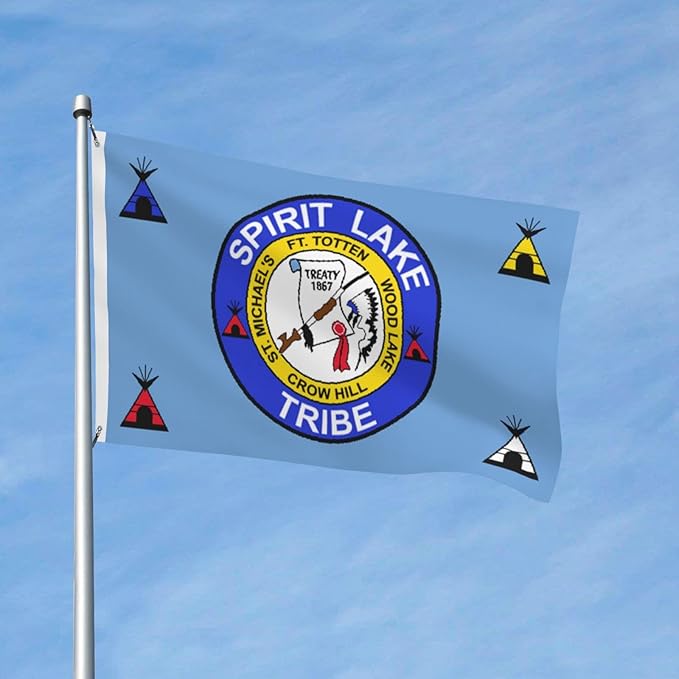
- Details
- By Levi Rickert
Today, the U.S. Department of the Interior announced that the U.S. Fish and Wildlife Service has finalized the transfer of 680 acres of land to the Bureau of Indian Affairs, where it will be held in trust for the Spirit Lake Nation in Benson County, North Dakota.
“This land transfer is a significant step toward strengthening tribal sovereignty and empowering the Spirit Lake Nation to use its trust lands for economic growth and community well-being,” said Department of the Interior Secretary Doug Burgum. “From the beginning, the Trump administration has been committed to fostering self-determination and expanding opportunities for tribal nations. By returning these lands, we are honoring the Spirit Lake Nation’s deep connection to their homeland and ensuring they have the resources needed to build a stronger future.”
This administrative transfer represents the culmination of a decades-long effort by the Spirit Lake Nation and underscores the administration’s commitment to strengthening tribal sovereignty, expanding economic opportunities, and improving the quality of life for Indigenous communities.
"The return of 680 acres to the Spirit Lake Tribe marks a historic victory and an important milestone in our healing and reconciliation journey,” said Spirit Lake Tribe Chairperson Lonna Jackson-Street. “This land, fought for by our ancestors, symbolizes both our history and our present as Native American people. For me, every acre returned is a testament to the dedication and efforts of our tribal leadership, both past and present, who have worked tirelessly to make this achievement possible.
"I would like to extend our gratitude to the Bureau of Indian Affairs, U.S. Fish and Wildlife Services, and the General Services Administration for their support in this process. The returned lands may potentially be utilized for the expansion of a new health center, and we are actively working on moving these lands into trust status. This victory stands as a powerful reminder of our resilience and commitment to our future generations."
The 680 acres will remain titled in the name of the United States of America held in trust for the Spirit Lake Nation. This legal status grants certain benefits, protections and limitations to land held in trust by the United States on behalf of an individual American Indian or a tribe.
This land was initially transferred from the Bureau of Indian Affairs to the U.S. Fish and Wildlife Service in 1959 to grow hay for feeding bison in the winter at the nearby White Horse Hill National Game Preserve.
More Stories Like This
Indian Gaming Association Condemns CFTC Over Prediction Markets, Warns of Threat to Tribal SovereigntyCommittee Advances 20% Increase to Navajo Child Support Guidelines
Navajo Committee Advances $84M Transportation Improvement Plan
NCAI Passes Two Emergency Resolutions on Immigration Enforcement Activities
Chickasaw Lighthorse Police Officer named Indian Country Law Enforcement Officer of the Year
Help us defend tribal sovereignty.
At Native News Online, our mission is rooted in telling the stories that strengthen sovereignty and uplift Indigenous voices — not just at year’s end, but every single day.
Because of your generosity last year, we were able to keep our reporters on the ground in tribal communities, at national gatherings and in the halls of Congress — covering the issues that matter most to Indian Country: sovereignty, culture, education, health and economic opportunity.
That support sustained us through a tough year in 2025. Now, as we look to the year ahead, we need your help right now to ensure warrior journalism remains strong — reporting that defends tribal sovereignty, amplifies Native truth, and holds power accountable.
 The stakes couldn't be higher. Your support keeps Native voices heard, Native stories told and Native sovereignty defended.
The stakes couldn't be higher. Your support keeps Native voices heard, Native stories told and Native sovereignty defended.
Stand with Warrior Journalism today.
Levi Rickert (Potawatomi), Editor & Publisher


